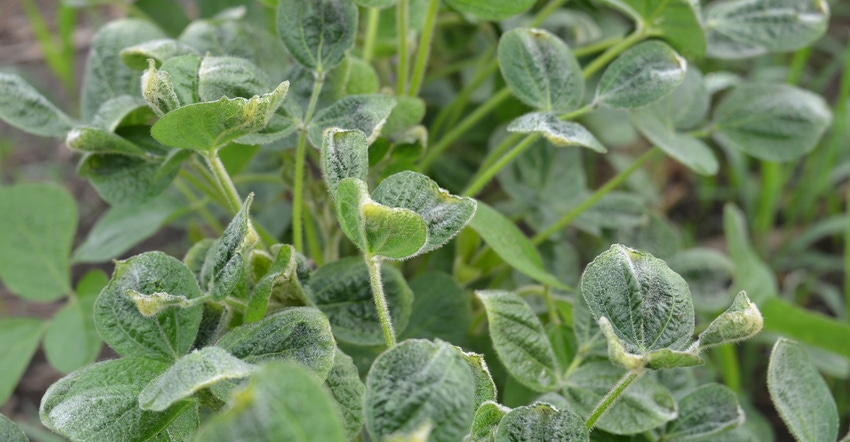December 3, 2019

The cutoff date for growers using the herbicide dicamba on dicamba-tolerant soybeans will once again be June 20, officials with the Minnesota Department of Agriculture decided.
The 2020 Minnesota restriction is in addition to those established by the U.S. EPA. The affected formulations are XtendiMax by Monsanto, Engenia by BASF, FeXapan by DuPont and Tavium by Syngenta.
MDA’s announcement is based on ongoing investigations and informal surveys into reports of crop damage from alleged dicamba off-target movement over the past three growing seasons. In 2017, the MDA received 253 reports of alleged dicamba drift. Those reports impacted an estimated 265,000 acres. After a June 20 cutoff date was put in place, the number of complaints dropped dramatically to 53 reports in 2018, which affected just over 1,800 acres, and 22 reports in 2019 that impacted approximately 760 acres.
“Dicamba is an important tool for combating herbicide-resistant weeds in dicamba-tolerant soybeans,” said Thom Petersen, agriculture commissioner. “The MDA wishes to preserve this tool for farmers. However, it’s also important to limit impacts on neighboring homes, farms and gardens. We have seen continued improvement of the use of these products because of the June 20 cutoff date. That’s why we are moving forward with this again in 2020.”
The June 20 cutoff date for the 2020 growing season was established after the review of survey results and peer reviewed literature and input from University of Minnesota Extension weed scientists. Historically, the majority of Minnesota soybeans are still in the vegetative growth stage by June 20 and research has shown that plants in the vegetative stage are less affected than those in the reproductive stage.
In Minnesota, the XtendiMax, Engenia, FeXapan, and Tavium formulations of dicamba are “restricted use pesticides” for retail sale to and for use only by certified applicators.
Due to wet weather earlier this year, many farmers were unable to plant crops in a timely manner. Minnesota Soybean had asked for a week extension on dicamba applications to allow growers to use the product. However, MDA declined to grant the extension, citing potential problems of dicamba drift into fields not planted with dicamba-tolerant crops.
Source: MDA, which is solely responsible for the information provided and is wholly owned by the source. Informa Business Media and all its subsidiaries are not responsible for any of the content contained in this information asset.
You May Also Like




